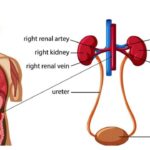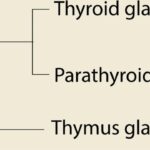When it comes to eating healthy, we often hear that fats are something to avoid. But not all fats are created equal, and, in fact, some fats are essential for our health—especially for our brains. In this article, we’ll explore the relation between fats and brain health. Let’s dive in to find out why some fats are actually a must-have for a sharp, healthy mind.
The Brain’s Fat Composition
Did you know that your brain is nearly 60% fat? That might come as a surprise, especially if you’ve grown up hearing that fat is the enemy. However, the brain relies on fat for its structure and function, making healthy fats a critical part of our diet.
Fats are integral to the structure of brain cells, known as neurons, and play a role in how these cells communicate with each other.
Without adequate fat, our brains can struggle to maintain efficient function, leading to problems with memory, focus, and even mood. So, while unhealthy fats can harm our bodies, good fats are actually essential for keeping our brains running smoothly.
Relation Between Fats and Brain Health
Not all fats are beneficial. There are different types of dietary fats, and understanding which ones support our brain health is key to making the right choices.
- Saturated Fats: These are found in foods like butter, cheese, and red meat. While they’re not inherently “bad,” too much saturated fat can negatively affect heart and brain health.
- Trans Fats: These are the unhealthy fats you’ll find in many processed and fried foods. Trans fats are associated with inflammation and can harm brain function, leading to issues like memory problems over time.
- Unsaturated Fats: This group includes both monounsaturated and polyunsaturated fats, and these are the real heroes when it comes to brain health. Foods like fish, nuts, seeds, and olive oil are rich in unsaturated fats, which provide the nourishment your brain needs to thrive.
Omega-3 Fatty Acids: The Ultimate Brain Booster
Among the unsaturated fats, omega-3 fatty acids are the ultimate brain boosters. These essential fats are called “essential” because our bodies cannot produce them on their own—we need to get them from our diet.
Two key types of omega-3s, DHA (Docosahexaenoic Acid) and EPA (Eicosapentaenoic Acid), are particularly crucial for brain health. DHA is a fundamental component of brain cell membranes, helping neurons function properly. EPA, meanwhile, has been linked to reducing inflammation and supporting overall brain health.
Omega-3s are also known to play a big role in mood regulation and cognitive abilities like memory and focus. Numerous studies have found that people who eat a diet rich in omega-3s often have better cognitive function and a lower risk of age-related cognitive decline.
Foods like fatty fish (salmon, mackerel, sardines), flaxseeds, chia seeds, and walnuts are excellent sources of omega-3s. Including these foods in your diet can give your brain the support it needs to stay sharp.
Omega-6 Fatty Acids and Brain Health
Omega-6 fatty acids are another type of polyunsaturated fat that’s essential for the body. However, balance is everything. Omega-6 fats are found in many vegetable oils, nuts, and seeds, and while they provide energy and support various bodily functions, having too much can be problematic.
In our modern diets, it’s easy to consume far more omega-6s than omega-3s. This imbalance can lead to increased inflammation, which has negative consequences for the brain. Maintaining a healthy ratio of omega-3 to omega-6—typically around 1:4—is key to supporting cognitive health and reducing the risk of issues like chronic inflammation.
Monounsaturated Fats and Their Cognitive Benefits
Another group of fats worth incorporating into your diet is monounsaturated fats. These fats are found in foods like avocados, olives, nuts, and seeds. Monounsaturated fats have been linked to numerous health benefits, including improved heart health and, importantly, better brain function.
Research suggests that monounsaturated fats help protect brain cells from damage, promote healthy blood flow to the brain, and may help reduce the risk of cognitive decline as we age. Incorporating foods rich in monounsaturated fats into your diet is an easy and delicious way to help support a healthy mind.
Foods Rich in Brain-Boosting Fats
Let’s talk about some foods that are packed with these incredible brain-boosting fats and how to incorporate them into your daily meals:
- Fatty Fish: Salmon, mackerel, sardines, and trout are excellent sources of omega-3 fatty acids, particularly DHA and EPA. Aim to eat fatty fish at least twice a week to keep those omega-3 levels up.
- Flaxseeds and Chia Seeds: These tiny seeds are powerhouses of omega-3s. You can sprinkle them on your cereal, mix them into smoothies, or use them in baking for an extra dose of healthy fats.
- Walnuts: Walnuts are another fantastic source of omega-3s. Snack on a handful or add them to salads and baked goods for a brain-healthy boost.
- Avocados: Rich in monounsaturated fats, avocados can be enjoyed in a variety of ways—on toast, in salads, or even in smoothies for a creamy texture.
- Olive Oil: A staple of the Mediterranean diet, extra virgin olive oil is a fantastic source of monounsaturated fats. Use it in salad dressings, drizzle it over cooked veggies, or dip bread into it for a simple and satisfying way to add healthy fat to your meals.
How Healthy Fats Improve Cognitive Function
Healthy fats are essential for more than just maintaining the structure of brain cells—they also influence cognitive function in significant ways. Omega-3 fatty acids, for instance, are crucial for maintaining cell membrane fluidity, which helps in efficient communication between brain cells. This translates into improved memory, learning capabilities, and focus.
Moreover, studies have linked diets high in omega-3s and other healthy fats to better performance on cognitive tests. One study even found that people who regularly consumed fish had more gray matter in the brain—the part associated with processing information and memories—than those who didn’t.
Healthy Fats and Mental Health
Healthy fats don’t just keep your brain sharp—they also play a significant role in your emotional well-being. Omega-3 fatty acids have been linked to mood regulation and have shown promise in helping to manage conditions like depression and anxiety.
A deficiency in omega-3s may contribute to mood disorders, as these fats help regulate neurotransmitters like serotonin, which plays a role in mood stabilization. Incorporating more omega-3-rich foods into your diet may help you manage stress better and keep anxiety at bay, providing a natural way to support mental health.
Fats and Age-Related Cognitive Decline
One of the biggest concerns many of us have as we age is maintaining our mental sharpness. The good news? Healthy fats can help here too. Omega-3 fatty acids are thought to protect against age-related cognitive decline and may even reduce the risk of developing Alzheimer’s disease.
The neuroprotective properties of omega-3s support brain plasticity—the brain’s ability to form new neural connections—which is vital for learning and memory.
In older adults, a diet rich in omega-3s has been linked to better memory and a lower risk of cognitive impairment. So, eating those healthy fats is not just an investment in your current well-being but also in your future mental health.
Myths About Fats and Brain Health

There’s a lot of confusion out there about fats, and it’s important to set the record straight. One common myth is that all fats are bad for your brain. While it’s true that trans fats and excessive saturated fats can have harmful effects, healthy fats are not only good but essential for your brain’s health.
Another misconception is that a low-fat diet is the best approach for overall health, including cognitive function. The reality is that low-fat diets can deprive your brain of the essential fats it needs, which can lead to problems with focus, memory, and even mood. It’s all about balance and making sure you’re getting the right kinds of fats.
How Much Fat Do You Need?
You might be wondering, “How much fat do I actually need?” Experts recommend eating at least two servings of fatty fish per week to meet your omega-3 needs. For those who don’t eat fish, plant-based sources like flaxseeds, chia seeds, and walnuts are good alternatives.
In general, fats should make up about 20-35% of your daily caloric intake, with an emphasis on omega-3s, omega-6s (in moderation), and monounsaturated fats. By focusing on the quality of the fats you eat rather than just the quantity, you can help support both your brain and body.
Tips for Incorporating Brain-Boosting Fats into Your Diet
Incorporating healthy fats into your diet doesn’t have to be complicated. Here are some simple ways to make it happen:
- Add Seeds to Smoothies: Flaxseeds and chia seeds blend well into smoothies and can boost your omega-3 intake effortlessly.
- Choose Fatty Fish: Make salmon or mackerel a part of your dinner rotation. Grill, bake, or pan-sear for a quick and easy meal.
- Swap in Olive Oil: Use extra virgin olive oil instead of butter or margarine for cooking and dressings.
- Snack on Nuts: Keep a stash of walnuts, almonds, or mixed nuts handy for a convenient, brain-healthy snack.
Read also: How To Determine If A Heart Attack Is Work-Related
Conclusion
Healthy fats are the unsung heroes of brain health, providing the nourishment our minds need to function at their best. From supporting cognitive function and memory to improving mood and reducing the risk of age-related cognitive decline, good fats are a key part of a well-balanced diet.
The next time you’re planning your meals, remember that not all fats are bad. Embrace those omega-3s, monounsaturated fats, and even a healthy balance of omega-6s to give your brain the fuel it needs. By making mindful choices, you’re not only taking care of your body but also investing in a sharper, healthier mind—today and for years to come.



